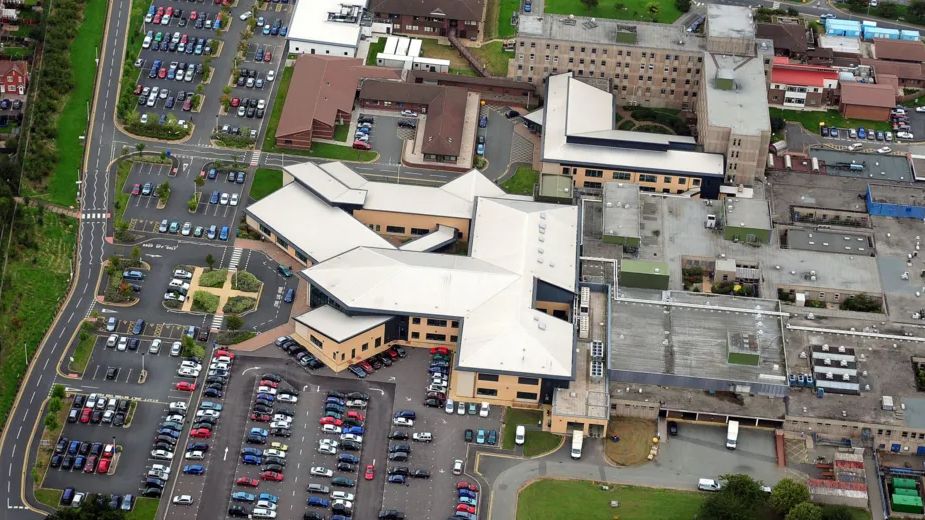Patient care in hospital corridors is 'now normal'
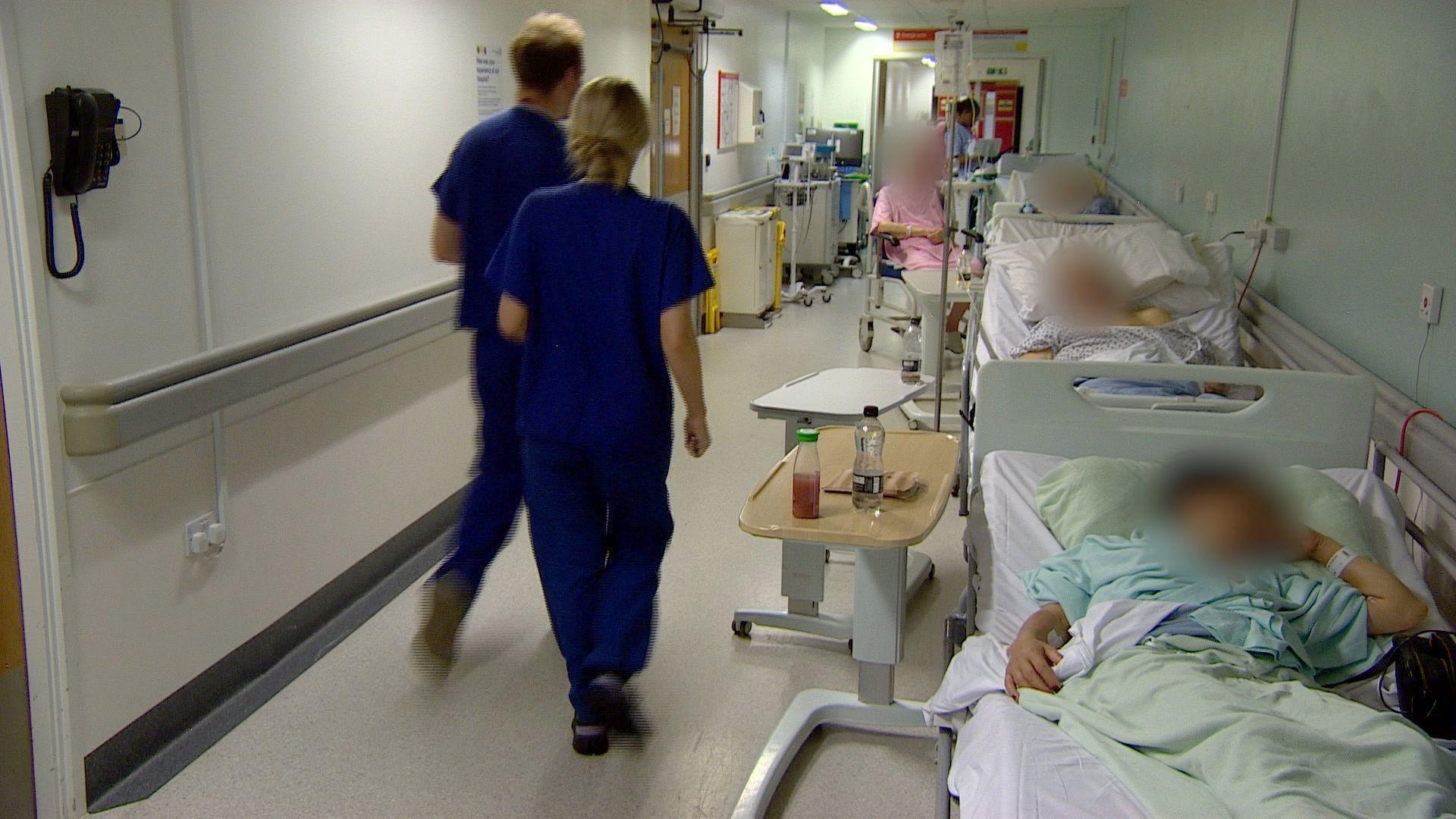
Queen's Hospital, Romford, where it is "customary to have patients treated on our corridors pretty much all of the time"
- Published
We’re at Queens hospital in Romford, east London, a hospital that serves those in the constituency of the new health secretary, Wes Streeting.
And, like many across the capital it is busy. Really busy.
When we were filming, 17 patients from their A&E were being treated on beds in corridors.
Growing numbers of attendances have meant that what was once an emergency measure has now become the norm.
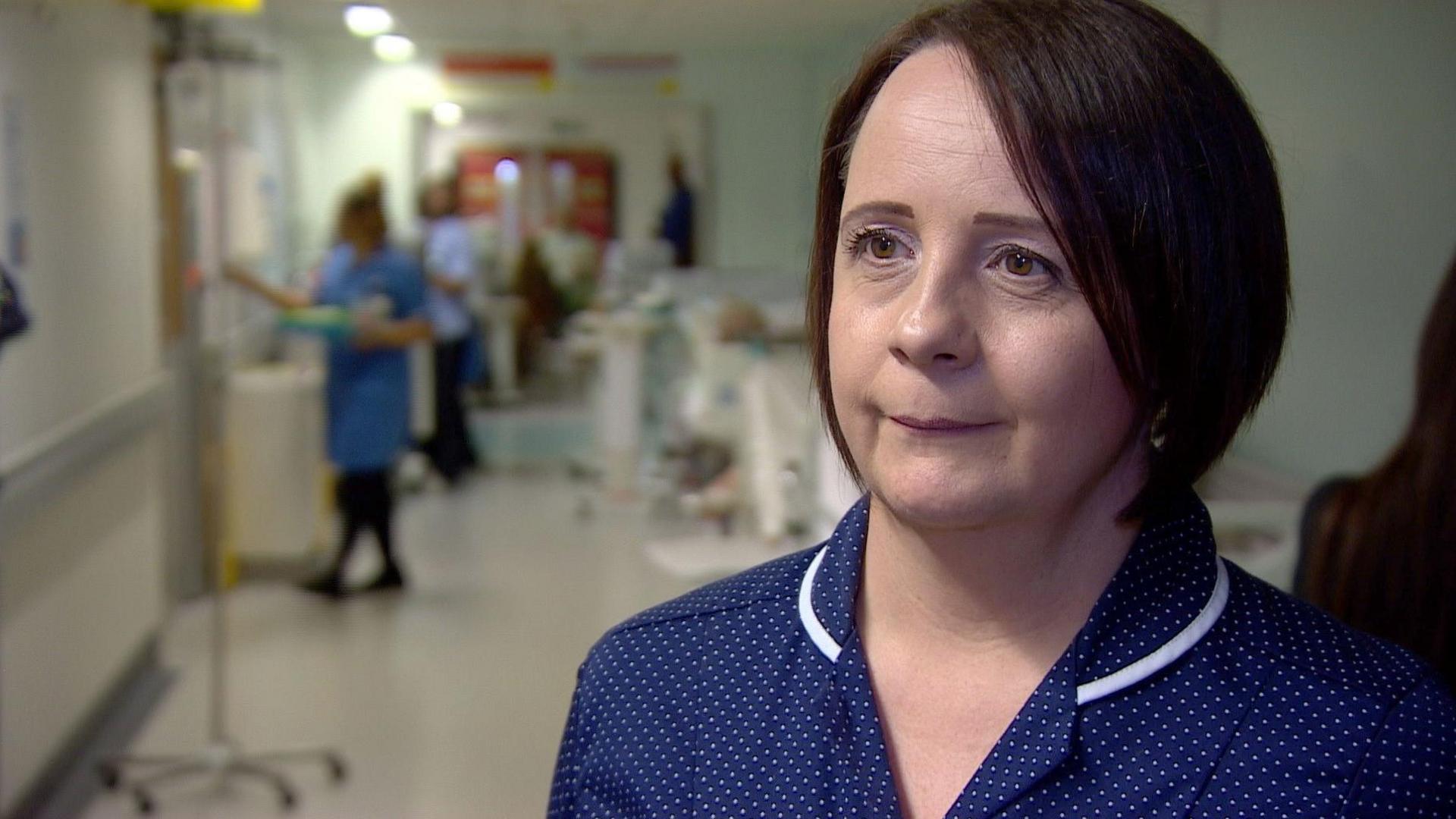
Ruth Green is the director of nursing for the emergency department and says corridor care has become "customary practice"
When we last filmed the corridor treatments here back in January 2023, the department was seeing 1,400 patients arrive each month by ambulance. Now that number has risen to 2,100.
The number of ambulances arriving every day has gone up in a year too, from around 90 per day to around 120.
'It's not ideal'
Ruth Green, the director of nursing for the emergency department said: "Unfortunately it is now customary practice to have patients treated on our corridors pretty much all of the time. Not every day now it’s the summer but still far too often."
They have had to install new plugs in the corridors so they can operate the hospital beds, new nurse-call buttons and a new sink.
When things get really busy up to four corridors can be used for care.
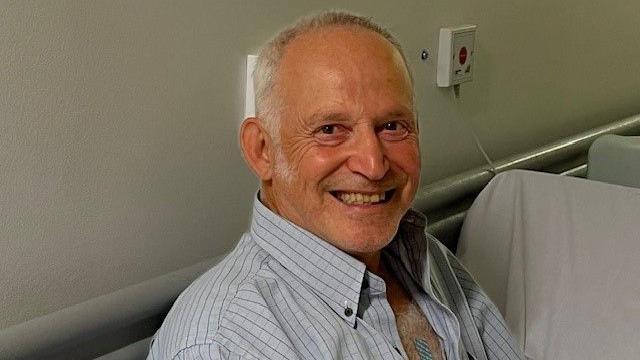
Louis Bella was treated in a corridor after being admitted with chest pains
One patient in a bed in the corridor is Louis Vella.
He spent 18 hours in A&E after coming in with chest pains and was eventually transferred to a corridor to wait for a bed on a ward.
"It’s not ideal, no," he said. "But they are working as best they can with what they’ve got and what else can one ask for?"
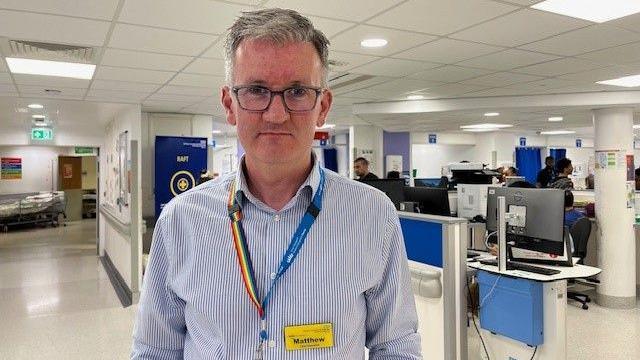
Matthew Trainer says healthcare demand has increased across the board
The A&E here at Queen’s was built for around 300 patients a day, now it is not unusual for it to see twice that number.
The chief executive here Matthew Trainer says it is a sign of strains across the whole health system: "Around our hospitals we have some of the lowest levels of GPs in England.
"The GP's we have got are seeing more patients than ever before but there’s so much demand there."
He added: "There’s been a pandemic which was a big hit and we’re seeing more respiratory illnesses than normally at this time of year.
"Pretty much every channel of health care that is open to patients is seeing an increase in demand just now and lots of it is turning up here."
'More money'
And the chief executive's advice for the new health secretary? More emphasis on care out of hospitals, more community health initiatives and more work to stop being getting ill in the first place.
And he would like to see some more money for new buildings.
But Mr Trainer's ask comes with a warning for the public not to expect immediate improvements: "We’ve heard a lot of this before, but what we really need is for people to hold their nerve over 5-10 years around this.
"The thing with the NHS is to train staff up and you can’t switch that on and off."
Mr Trainer added: "I think there are reasons to be optimistic at the minute but it might not deliver for this winter, but maybe by next winter we’ll begin to see some benefits from a longer-term approach."
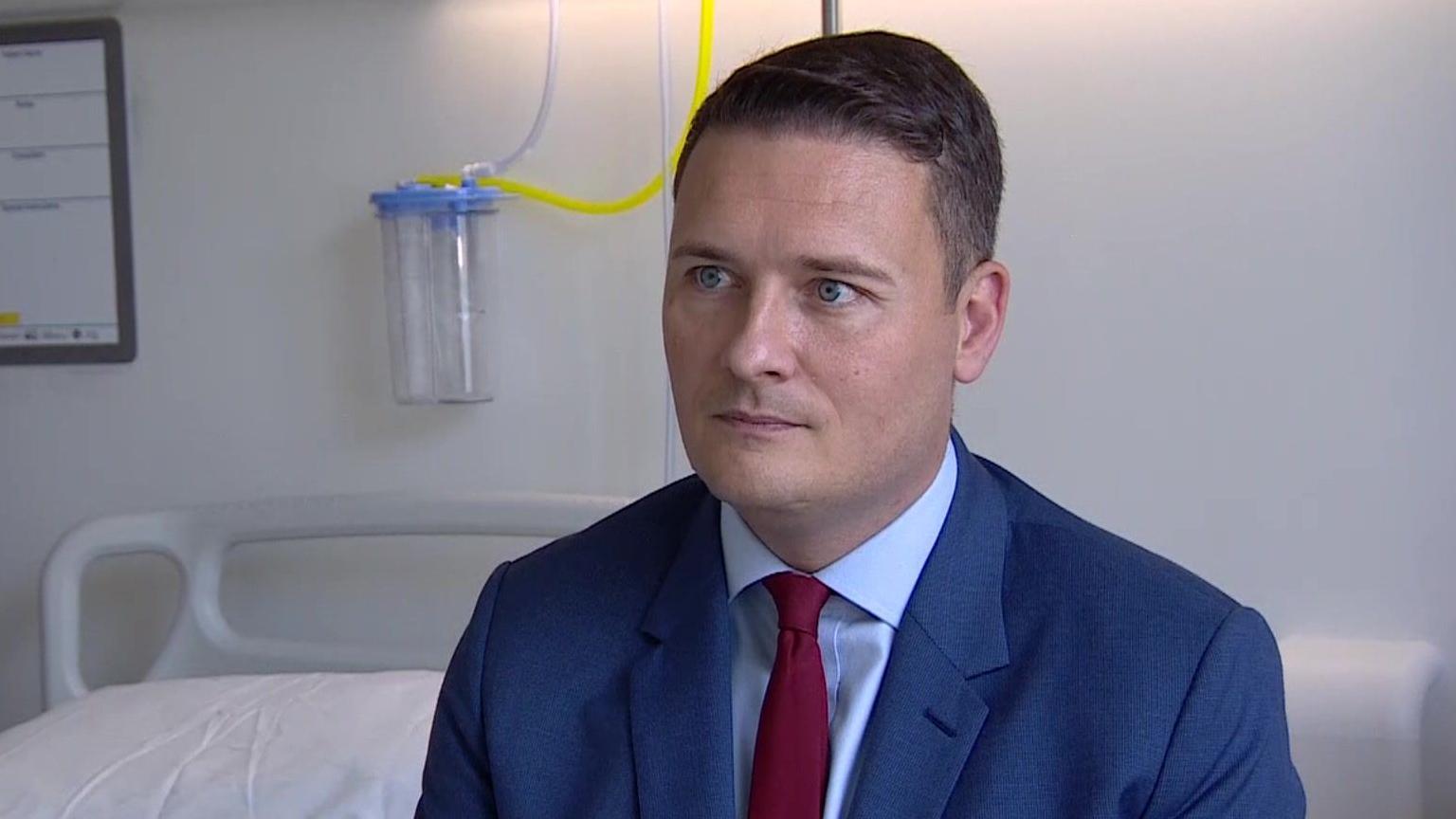
Wes Streeting said the government is "determined" the NHS will meet its constitutional obligations within five years
Speaking to BBC London on Friday, Mr Streeting said he was concerned that some of the issues at Queens are "the new normal".
"We must not allow this to become normalised... in the NHS where we see trolley waits become standard and acceptable. That’s why we’re honest about the fact that it’s going to take time to turn the NHS around. But we have a plan to do it," he said.
Mr Streeting said this would involve fixing "the front door to the NHS in primary care, in general practice, in community services. Also to make sure we deal with late discharges... by better integrating NHS and social care services, so we get people out of hospital and back home as quickly as possible".
He said although "there are no quick fixes" the government is "determined that by the end of this parliament" NHS performance standards will again conform to guidelines set out in the NHS constitution, including A&E waits of no more than four hours.
Listen to the best of BBC Radio London on Sounds and follow BBC London on Facebook, external, X, external and Instagram, external. Send your story ideas to hello.bbclondon@bbc.co.uk, external
Related topics
- Published12 January 2023
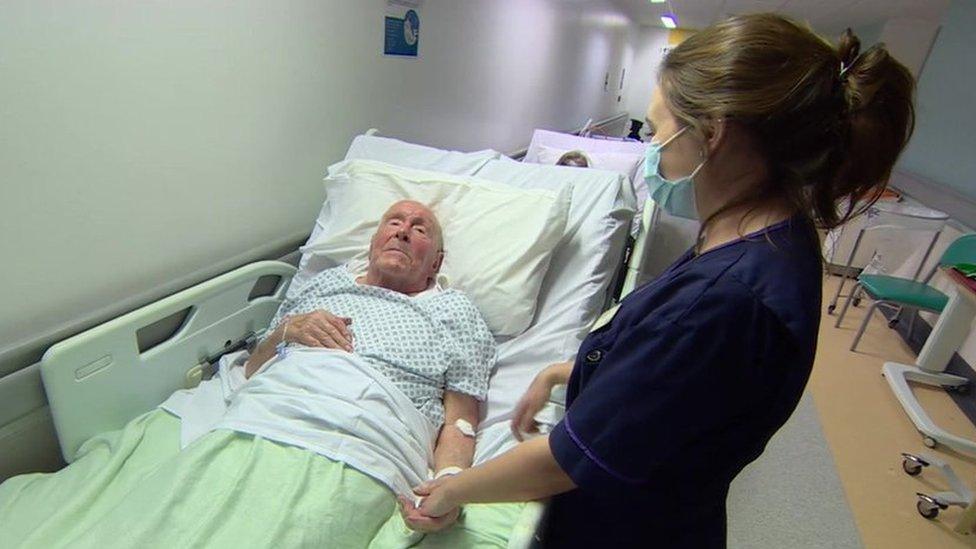
- Published3 June 2024
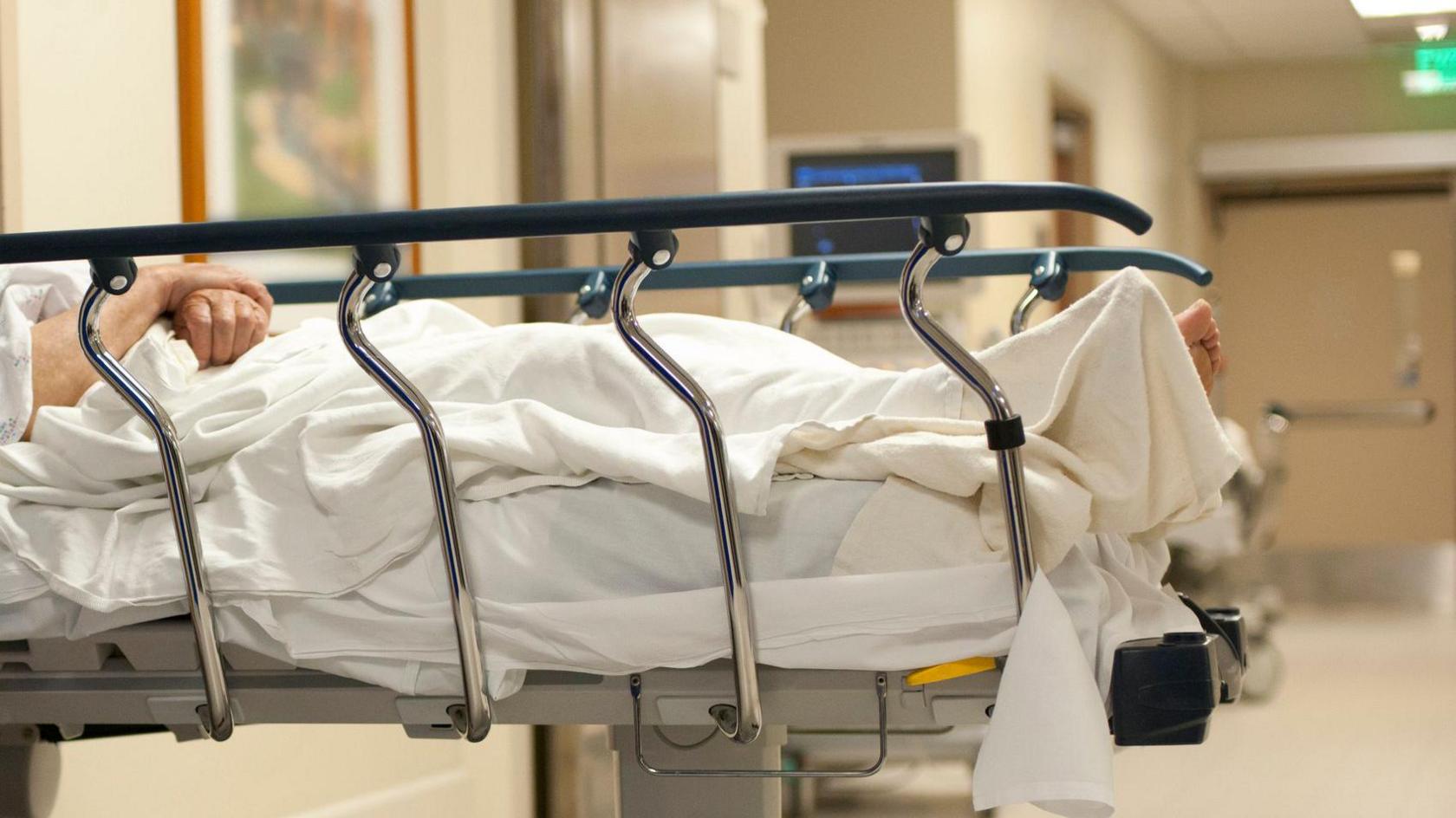
- Published24 June 2024
